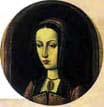|
When we think of kings, queens, emperors or any kind of royal leader, what usually comes to everyone‘s mind is dignity, power, ornate dress or majestic figures sitting elegantly on their thrones dispensing favours or wisdom to their subjects. Although many monarchs have done justice to this vision, throughout the world and throughout history there have also been a number of bizarre, frankly eccentric, rulers.

The French have had their fair share of idiosyncratic kings. Charles VI, who reigned from 1368 to 1422, was not always aware that he was king and often forgot that he had a wife and children. There were times when he believed that he was made of glass and had his man servants put rods into his clothing so that he would not shatter! Charles the Mad, as he was known, would run around the palace grounds howling like a wolf until, eventually, his son-in-law had to take over as regent.

Turning now to Russia, one of their more eccentric tsars, or leaders, was Fyodor I (1557-1598). He is said to have been simple-minded, and earned the nickname Fyodor the Bellringer for the almost childlike pleasure he took in ringing church bells. Not only did he allegedly lack the intelligence to rule, he also had no interest in doing so, leaving the running of the state to his wife's brother, Boris Godunov. Happily for him, rather than it being seen as a disadvantage, his subjects saw his childlike simplicity as being divinely inspired. However, as he died childless, his death marked the end of the Rurik dynasty and the beginning of a tumultuous period in Russian history known as the 'Time of Troubles'. Had he left an heir, Russian history might well have gone in a different direction.

England too can boast of at least one peculiar monarch, George III, who reigned from 1760 to 1820. One of his most evident quirks was his speech and famously he once produced a sentence containing 400 words with only 8 of them being verbs! He once purportedly shook hands with a tree, believing it to be the King of Prussia! However, history often ignores the successes of his reign. He was the first English king to study the sciences, of which he became a patron, with the construction of the King's Observatory in Richmond amongst his achievements. But his supposed episodes of madness, particularly towards the end of his life, remained a concern, and according to the standards of the day, George was subjected to some bizarre and inhumane treatments in an attempt to cure them. Interestingly, there is some speculation from historians that had it not been for these treatments, he would not have been quite so unstable.

Roman emperors are also said to have had some bizarre characters among their number, and Caligula, who ruled from 37-41 AD, probably has the worst reputation. Amongst other things, he was reported to have been an insomniac, roaming his palace all night and engaging in lengthy conversations with the Moon and Jupiter. He allegedly even appointed his horse as a senator, building it a stable out of marble and inviting it to dinner with his guests. However, it should be pointed out that many of these 'reports' about Caligula were written more than 80 years after his death, so their accuracy is open to question. What's more, if we compared his supposed behaviour to that of many of the other Roman emperors, quite a few of them would almost certainly be regarded as even more eccentric.

One queen who was actually ‘aCCUsed' of madness was Joanna (Juana) of Castile, who reigned from 1504 to 1516. However, again, whether this was the case or not is subject to debate. Certainly some of her behaviour could be regarded as unconventional, especially for the time. She was said to have been very jealous and on one occasion attacked and cut off the hair of a rival for her husband's affections. On the other hand, by many accounts she was a gifted and intelligent woman with a talent for diplomacy. The fact that both her father and her own son declared her mad and unfit to rule so that they could reign in her stead raises the question of whether the accusations were actually motivated by political ambition. Whatever the case, historians have dubbed her Joanna the Mad and, sadly for her reputation, this is unlikely to change.
G As we know from modern-day news reporting,just because something appears in print, it doesn't necessarily mean it is true, and it is all too easy to ruin someone's reputation with gossip and hearsay. Perhaps we should keep this in mind when we read about these colourful historical characters and remember that some of them may have been unfairly judged. After all, we all have our own strange habits and quirks. I for one think we should celebrate royal eccentricity. It certainly makes reading history much more interesting.
|

